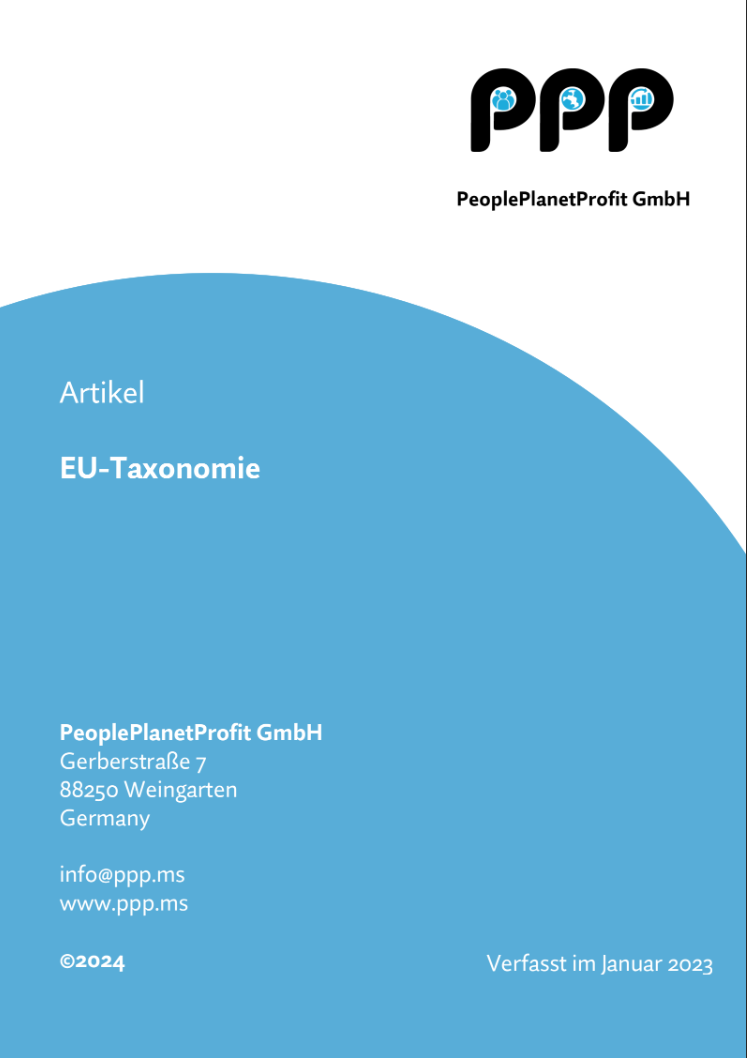What is the CSR KPIs module?
TransPPParent’s CSR KPIs module helps companies to achieve their Corporate Social Responsibility (CSR) goals by collecting, analyzing and monitoring relevant Key Performance Indicators (KPIs). With this module, companies can make their sustainability strategies more transparent and measurable by tracking and evaluating key social, environmental and economic indicators in real time. This turns CSR into a strategic, data-driven process that strengthens both compliance and the company’s long-term responsibility.
The role of digital CSR KPIs
Digital CSR KPIs are essential to effectively manage and improve a company’s sustainability performance. They provide a structured and automated way to measure progress in various CSR areas such as environmental protection, social responsibility and economic fairness. The use of digital KPIs enables rapid data collection, transparent reporting and the continuous improvement of CSR initiatives. They not only help to meet legal requirements, but also increase the trust of customers, investors and other stakeholders by demonstrating the company’s sustainable orientation.
All the advantages of the module at a glance
Our services
Our services for the CSR KPIs module in TransPPParent offer comprehensive support for the implementation and optimization of your CSR strategies. We ensure that you get the most out of the software right from the start by offering customized solutions tailored to your specific requirements:
- CSR KPI programming and customization
- Technical support and training on KPI monitoring
- Support with the integration of CSR data from different departments
- Creation of analysis dashboards
- Development of action plans to optimize your CSR goals
Unique advantages with PPP
Working with PPP offers unique advantages when implementing and using the CSR KPIs module. We support you not only with the introduction of the software, but also with the continuous improvement and optimization of your CSR strategies. Thanks to our extensive expertise in the field of sustainability and digitalization, we offer you tailor-made solutions for your specific challenges.
- Fast processing: By using state-of-the-art software, we provide you with fast and precise results.
- International team: Our global team is on hand to help you with all your questions and challenges.
- Industry expertise: Our team has extensive knowledge of corporate social responsibility and can draw on many years of experience in various industries.
- Customized solutions: We offer customized consulting and service packages tailored to your company’s exact needs.
- Measurable improvements: Our services enable you to achieve concrete improvements in your CSR strategy and performance.
- Continuous support: We accompany you in the long term and support you in the sustainable implementation of your CSR goals.
- Improved corporate image: Transparent CSR reporting and successes improve the positive image of your company in the long term.

EU-Taxonomie - ArtikelSend download link to: |
Free initial consultation
Would you like to find out more about the CSR KPIs module and how it can help your company achieve sustainable goals effectively? Contact us today for a free initial consultation. Our experts are ready to work with you to develop a customized solution and take your CSR strategy to the next level.
Patrick Wortner
CEO | MBA and Eng., Dipl.-Ing. (FH)
What are CSR KPIs?
CSR KPIs (Key Performance Indicators) are indicators that help companies to systematically measure and evaluate their performance in the area of Corporate Social Responsibility (CSR). These KPIs cover various dimensions of sustainability, including environmental, social and economic factors.
They enable companies to monitor and transparently communicate their progress in achieving their CSR goals. The most common CSR KPIs include CO₂ emissions, resource efficiency, employee satisfaction, ethical business practices and the promotion of social responsibility.
The importance of CSR KPIs for companies
CSR KPIs play a central role in how companies pursue their sustainable goals and fulfill their responsibility towards society and the environment. They provide a sound basis for:
- Make sustainability measurable: Companies can accurately measure and transparently present their environmental and social performance.
- Manage strategies: By regularly monitoring KPIs, companies can adjust and improve their CSR strategies in a targeted manner.
- Convince stakeholders: A clear presentation of CSR successes strengthens the trust of investors, customers, employees and other stakeholders and highlights the company as a responsible player.
- Compliance with standards: CSR KPIs enable legal requirements and international standards such as the UN sustainability goals, the GHG Protocol or ISO standards to be met and documented transparently.
Functions of the CSR KPIs module in TransPPParent
The CSR KPIs module in TransPPParent offers a powerful and user-friendly solution for recording and analyzing your CSR key figures. It supports companies in measuring and evaluating CSR initiatives and provides sound data for continuous improvement. Key features of the module include
- Automated collection of CSR data: The module enables simple and error-free collection of data from various areas of the company, such as CO₂ emissions, energy efficiency or employee satisfaction.
- Live dashboards and visualizations: Track the development of your CSR targets in real time. The dashboard functions provide a clear and quick overview of your most important CSR key figures.
- Integration of data sources: The module integrates seamlessly with other modules in the TransPPParent platform, giving you a comprehensive analysis of your CSR activities.
- Target realization: With the help of reduction targets and KPIs, companies can document their progress and evaluate the effectiveness of their CSR initiatives.
- Customized KPIs: KPIs can be customized to your company’s specific goals and requirements to provide a tailored solution for your CSR strategy.
Outlook
TransPPParent’s CSR KPIs module offers companies an efficient and transparent solution for measuring and improving their sustainability performance. By automating data collection and comprehensively analyzing CSR initiatives, the module supports companies in making their CSR goals measurable and ensuring the success of their sustainability strategies.
With the flexible adaptation of KPIs to individual requirements and integration into a central platform, companies receive a holistic solution for the implementation of their CSR strategies. In this way, companies not only contribute to improving their own processes, but also strengthen their position as a responsible player in the market.
Free initial consultation
Would you like to find out more about the CSR KPIs module and how it can help your company achieve sustainable goals effectively? Contact us today for a free initial consultation. Our experts are ready to work with you to develop a customized solution and take your CSR strategy to the next level.
Patrick Wortner
CEO | MBA and Eng., Dipl.-Ing. (FH)
Frequently asked questions
What are CSR KPIs and why are they important?
CSR KPIs are key performance indicators that help companies to measure and monitor their social, environmental and economic impact. They are important because they provide an objective basis for evaluating the success of sustainability strategies and communicating them more transparently.
Which KPIs should companies track?
The relevant KPIs vary from company to company, but typically include CO₂ emissions, energy consumption, waste management, water use and social factors such as employee satisfaction and diversity. The CSR KPIs module allows you to customize these KPIs to your specific needs.
How does PPP help with the implementation of CSR KPIs?
PPP supports companies in selecting the right KPIs, integrating them into existing systems and training employees. We also offer support with data collection, analysis and report creation.
Can the module be adapted to individual requirements?
Yes, the CSR KPIs module is flexible and can be adapted to the specific requirements of your company. You can use both predefined and customized KPIs.
What problems does the CSR KPIs module solve?
The module automates data collection, improves the transparency and consistency of CSR data and facilitates compliance with regulations and standards.
What functions does the CSR KPIs module offer?
It enables the automatic collection and analysis of CSR data in real time, offers customizable dashboards and supports the tracking of progress in achieving CSR goals.
Which companies should use KPI software?
Companies of all sizes and industries that want to improve their CSR strategies, meet legal requirements or efficiently pursue their sustainability goals benefit from CSR KPI software.
What advantages does the CSR KPIs module offer?
The module increases efficiency through automation, improves transparency, supports well-founded decisions and facilitates compliance with regulations. It also helps to strengthen the company’s image by documenting sustainable progress.



